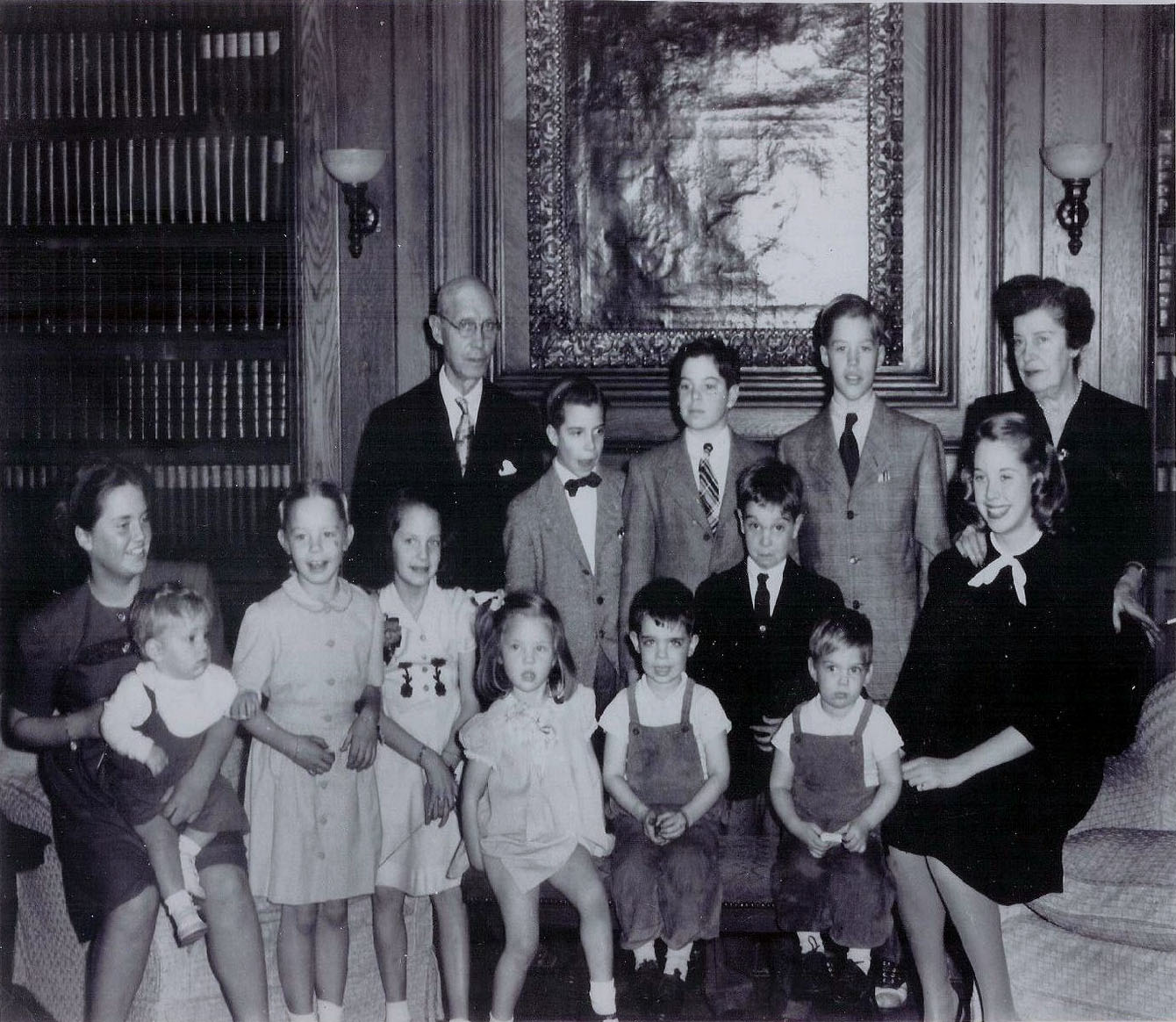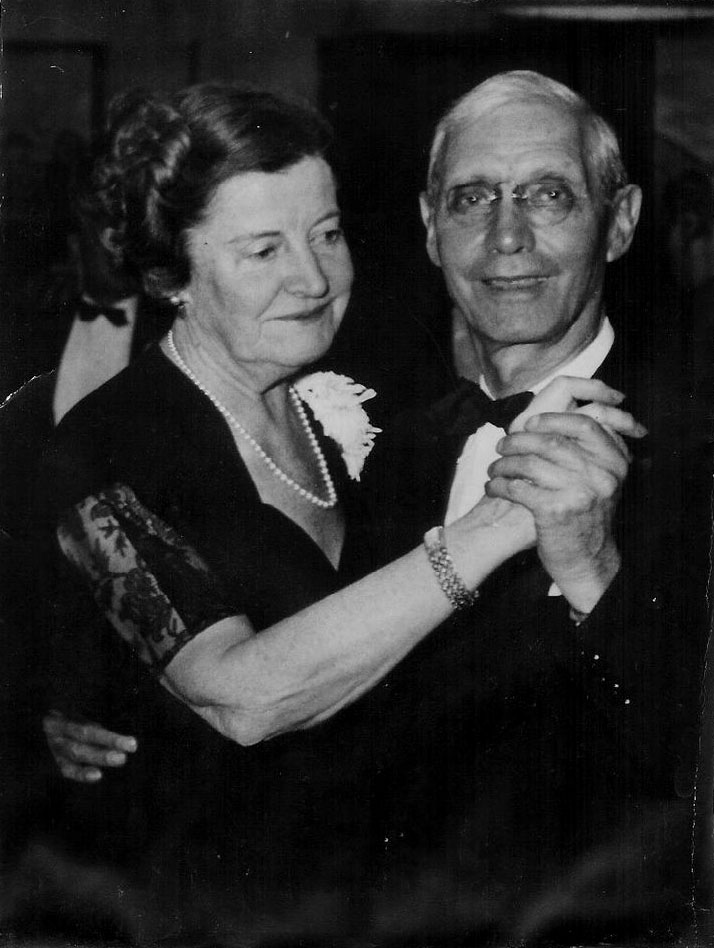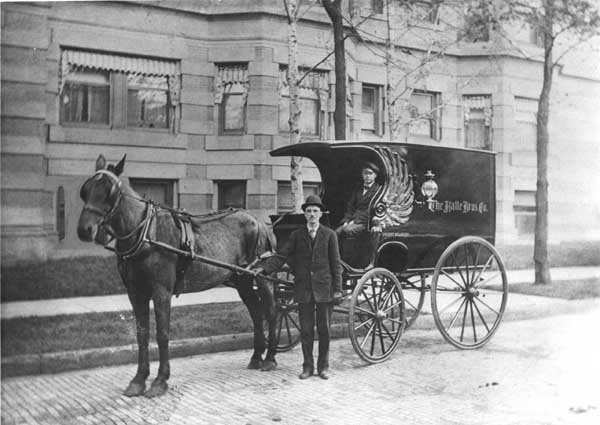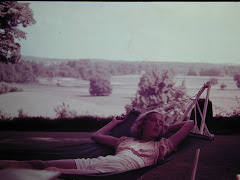
Kay Halle, 93, an Intimate of Century's Giants
By ROBERT McG. THOMAS Jr.
Kay Halle, a glamorous Cleveland department store heiress who cut a heady swath through the 20th century firmament, befriending and bewitching luminaries on both sides of the Atlantic and serving as a perceptive gadfly in politics, society and the arts, died Aug. 7 at her home in Washington. She was 93.
During a remarkable life in which she formed enduring intimate relationships with George Gershwin, Randolph Churchill, W. Averell Harriman, Joseph P. Kennedy, Walter Lippmann, Buckminster Fuller and scores of other diverse figures, Miss Halle demonstrated such a flair for friendship and a knack for bringing people together that it is a wonder she found time for anything else.
She had a creditable enough career in journalism and with American intelligence in World War II. But Miss Halle, who wrote for The Cleveland Plain Dealer and other publications, conducted radio interviews with public figures and provided intermission commentary for Cleveland Orchestra broadcasts, was at her best in private settings.
A tall, slender, blond beauty who kept her youthful good looks well beyond middle age and whose infectious enthusiasm continued long after that, Miss Halle (pronounced HAL-ee) once showed a friend a list of 64 men who had proposed to her, among them a youthful Randolph Churchill and an aging Averell Harriman.
(For all her reputation as a femme fatale, the "Mata Halle" nickname that William J. Donovan pinned on her during her years with his wartime Office of Strategic Services was more pun than analogy to the World War I seductress.)
Given the range and ardor of her admirers, one of Miss Halle's more notable achievements may have been avoiding marriage and thriving in an era when even independently wealthy spinsters were viewed with suspicion.
Seeking safety in numbers, she became famous for surprising wealthy suitors by showing up for dinner dates with several less well-heeled admirers in tow.
Even more notable was the fact that she remained on such good terms with her spurned suitors. Thirty years and two marriages after he was first rejected, for example, Churchill was still as devoted to her as ever.
That was partly because Miss Halle was such an attentive listener that she could repeat entire conversations verbatim, making her a reliable and entertaining gossip.
For all that, she had such a passion for discretion that long after most of her paramours were dead, including those who had not been free to propose marriage, she refused all entreaties to write her memoirs.
Even intimates who are certain, for example, that she had been Joseph Kennedy's favorite mistress cannot say for sure whether her friendship with Gershwin, who wrote her gushing letters, had been a full-blown romance.
A product of a fairy-tale union between a wealthy German-Jewish merchant and an Irish-Catholic working girl, Miss Halle, whose father was a founder of the old Halle Brothers department store in Cleveland, grew up in an ecumenical, intellectually charged atmosphere that left her without prejudice or pretension and with an eclectic range of interests, especially in people.
Her survivors include a sister, Ann Little of Chagrin Falls, Ohio.
Making the most of her family connections and even more of those she formed on her own, Miss Halle got her start in political society early.
During a family visit to Washington when she was 13, President Woodrow Wilson's secretary of war, Newton Baker, a former Cleveland mayor, had a young assistant, Walter Lippmann, show her around. He got her admitted to a special session of Congress, making her perhaps the last person alive to have witnessed Wilson's request for a declaration of war in April 1917.
Later, after one boring year at Smith College, Miss Halle took New York by storm, captivating Gershwin and making her apartment a headquarters of the roaring 20s.
She broadened her scope considerably after Randolph Churchill gave a speech in Cleveland in 1931 and fell in love with her. Although Miss Halle, who was eight years older than he was, kept him at bay, she became a frequent visitor to Chartwell, the Churchill country home in England, and a favorite of his father, Winston Churchill.
As a result, Miss Halle, who was an old friend of Franklin D. Roosevelt and campaigned for him in 1932, became one of the few people to be on intimate family terms with the two wartime leaders.
Miss Halle, who made Washington her base after World War II, became such a Churchill enthusiast that she published two volumes of his collected sayings and was credited with using her considerable drawing room influence to persuade Congress to confer the honorary U.S. citizenship that Sir Winston considered his most prized public tribute.






















